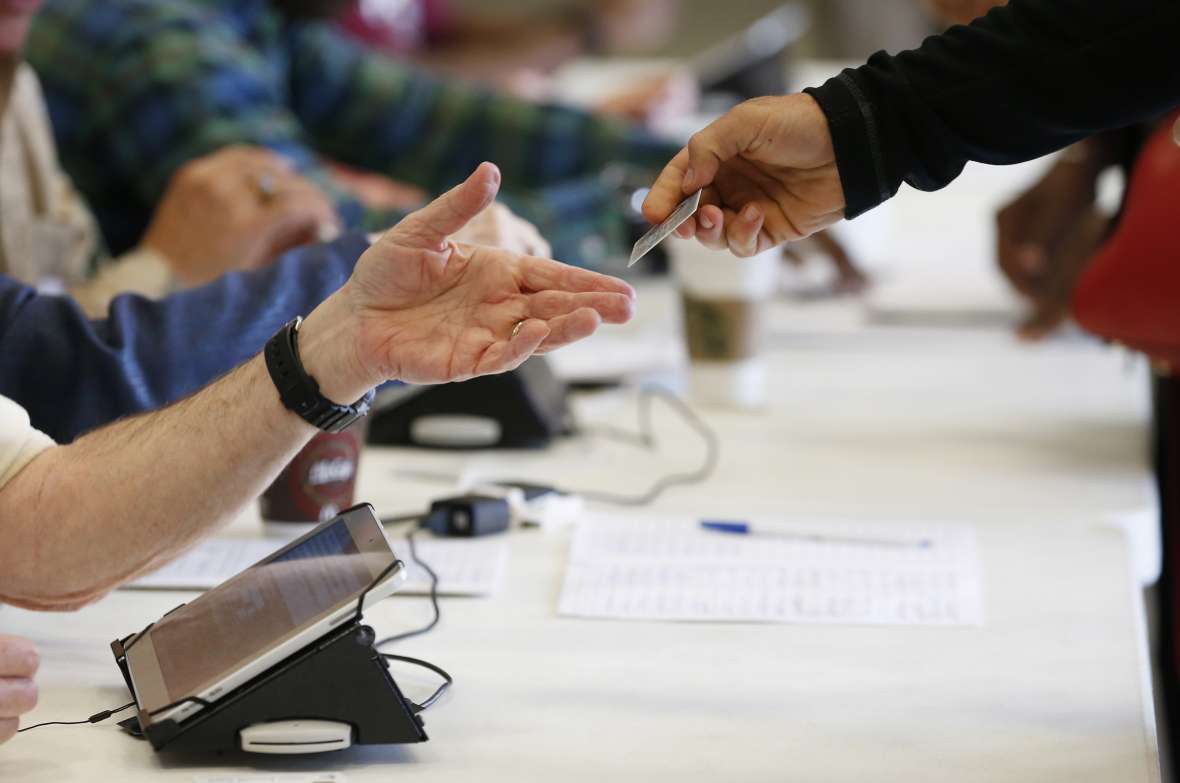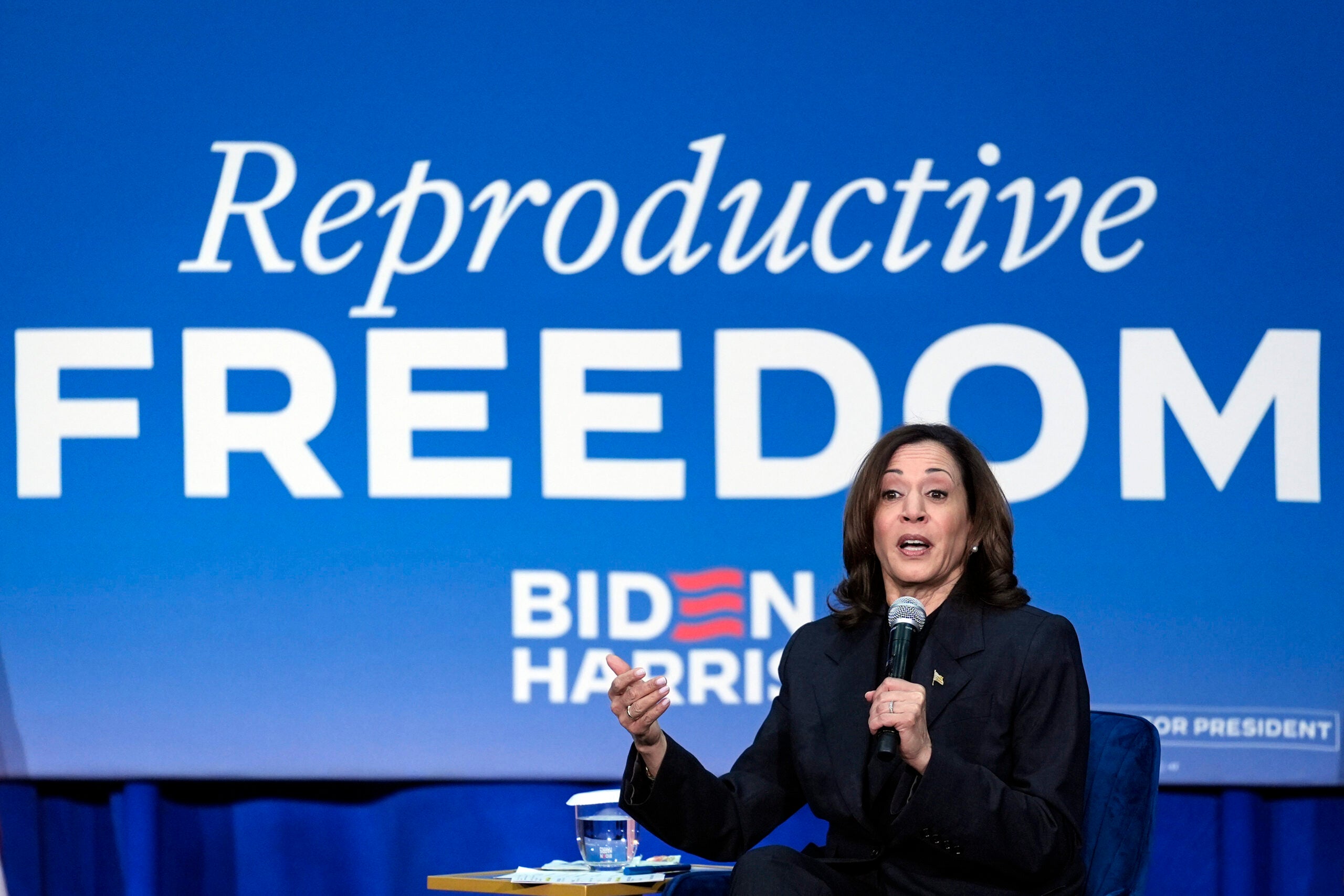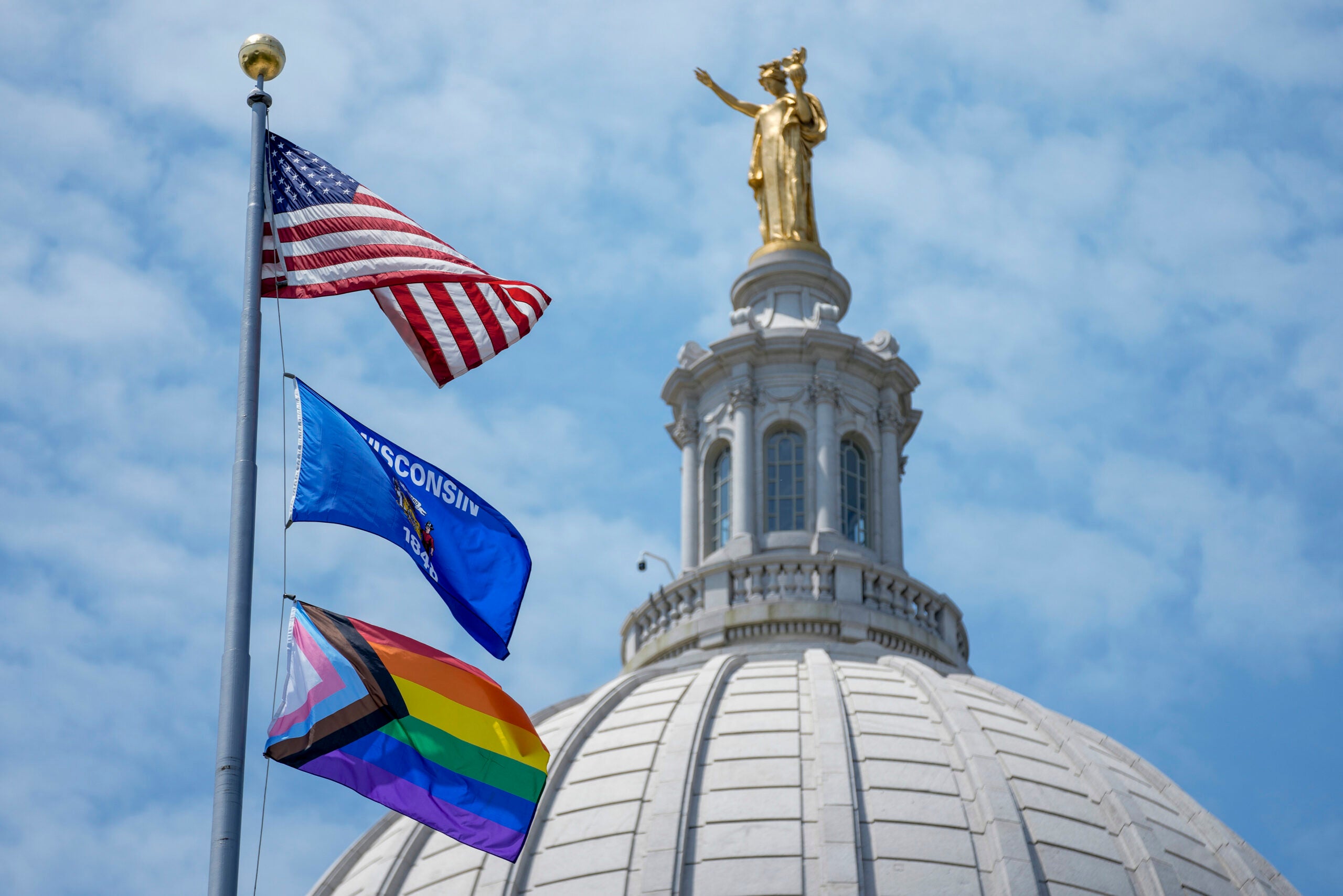While most respondents to a new survey said that they still support Wisconsin’s constitutional amendment that effectively bans same-sex marriage, the poll also found most people think gay couples should be granted certain civil rights.
The marriage amendment to the state constitution passed in 2006. The amendment states that “only a marriage between one man and one woman shall be valid or recognized as a marriage in this state.”
The questioners for the Wisconsin Survey, which was commissioned by Wisconsin Public Radio and St. Norbert College, used the amendment’s language when they contacted 401 state residents and asked if they favored or opposed the amendment.
News with a little more humanity
WPR’s “Wisconsin Today” newsletter keeps you connected to the state you love without feeling overwhelmed. No paywall. No agenda. No corporate filter.
Wendy Scattergood, an associate with the Strategic Research Institute at St. Norbert College, said support for the amendment has held steady over the years. This year, 51 percent of respondents favor it.
Still, she said that more than three-quarters — 77 percent of respondents — said they think gay couples should have some legal protections regarding health care and family leave.
Scattergood said people react to the term “marriage” and its spiritual implications.
“Because in a lot of ways, what they’re saying is the civil part of marriage, which is sort of the legal aspects of it, they’re in favor,” she said. “As we (saw) across the parties are in favor of those sorts of civil aspects of a marriage,”
Scattergood said support for those protections appears to be on the upswing.
“And that’s actually increased. When we first asked that question in the spring of 2009, only 60 percent — which is still a big majority,” she said. “But 60 percent favored giving those decisions to same-sex couples, and now it’s at 77 percent.”
She said support for legal protections is strong across party lines. While 90 percent of Democrats favor it, 65 percent of Republicans do. Three-quarters of those who identify themselves as independents also back the idea.
Wisconsin Public Radio, © Copyright 2026, Board of Regents of the University of Wisconsin System and Wisconsin Educational Communications Board.







